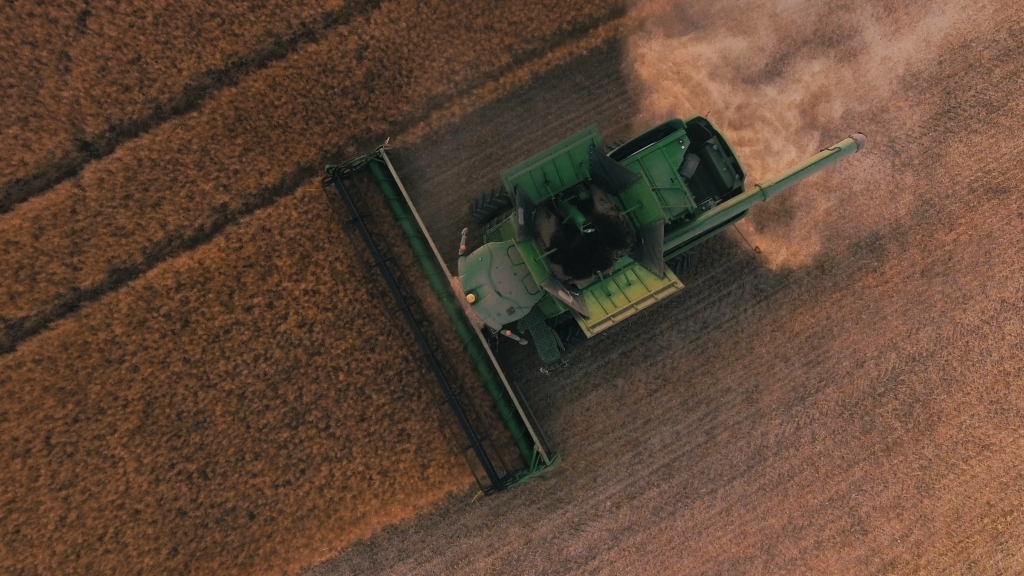Will going vegan help to stop global warming? Lundagård explores whether plant-based diets may benefit climate change.
A recent report from the United Nations urges us to change our dietary choices to slow down climate change. Our consumption choices and lifestyles contribute to global warming in numerous ways, including methane releases, agricultural pollution, and water shortages. What can we do to change this?
Plant-based lifestyles are seen to positively affect climate change, according to a study by Wynes and Nicholas in 2017 from Environmental Research Letters. Research finds that plant-based diet reduces an individual’s greenhouse gas emissions by at least 0.8 tCO2e (carbon dioxide equivalents over time) per year, which is about 5% of current annual emissions in the US.
This makes plant-based diets a high impact action that is more effective than commonly discussed options concerning climate change (e.g. plant-based diets save eight times more emissions than changing your light bulbs). Thus, focusing on high impact actions could be the possible path for transformative decarbonization lifestyles allowing us to reach the 2°C climate target by 2050.
The Center for Sustainable Systems at University of Michigan provides encouraging evidence for a vegan diet in combating climate change, through research conducted by Heller and Keolian in 2018. Their study regarding plant-based and meat-based protein shows that a vegan burger requires 93% less land to be produced than a beef burger. With more land, we can grow more food to feed the growing population, whilst still allowing for acres of land to return to carbon-storing forests, lowering our carbon footprint.
However, other researchers question the high impact of plant-based diets on fighting climate change. Isabella Tree, a conservationist and author of the Award-winning book “Wildling: The return of nature to a British farm” (2018) has abandoned industrial farming by conducting a large rewilding project over her 3500-acres of land. Tree argues that “we should not be seduced by exhortations to eat products made from industrially grown soya, maize and grains, but rather be encouraging sustainable forms of meat and dairy production based on traditional systems, such as conservation grazing”.
The high demand of so-called vegan “power” foods has also raised sustainability doubts. Tofu production, a plant-based substitute for meat, is one example. Dr. Graham McAuliffe, a speaker at the National Farmer Union conference in London in 2020, said “ there is more energy going into tofu production than anticipated, […]it could have a higher global warming potential than any monogastric animal.” i.e most animals except cows, sheep et cetera.
Additionally, tofu is made with soya which is found to be destructive to the environment as it destroys habitat for wildlife and increases greenhouse gases, contributing to global warming. Dr. McAuliffe argues that although most soya is consumed by livestock, replacing meat with tofu will not solve the problem of soya consumption, but only shifts the problem.
Scientifically, there is still no strong evidence proving that the demand for “power” crops may halt the climate change, while sustainable forms of livestock farming that restore soils and biodiversity seem to be more forthcoming.
In the vegan equation, ploughing is rarely considered. According to the science journal Nature, unless vegans source their products from organic no-dig systems, they are actively participating in the destruction of soil, which deprives other species of the conditions of life and contributes significantly to climate change. Ecosystem restoration is vital, as soil loss is one of the largest catastrophes today.
A report from the UN in 2015 showed that 25-40 billion tons of soil were lost yearly to erosion through intense ploughing, cropping and use of pesticides, herbicides, etc., which is related to vegan “power” foods production. Thus, natural grazing may reverse the process, hindering erosion, rebuilding the soil, providing biodiversity, pollinating insects, water and flood mitigation.
It is evident that humans should eat far less meat as it accelerates climate change. However, if the plant-based eater’s concern is the environment, simply giving up meat and dairy may not meet that objective, as organic and natural grazing produced meat may in fact reverse the negative effects we see today. While a great deal of studies has already been done, significantly more research is required to reach solid conclusions.









